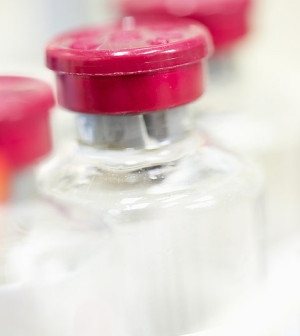- Could Artificial Sweeteners Be Aging the Brain Faster?
- Techniques for Soothing Your Nervous System
- Does the Water in Your House Smell Funny? Here’s Why
- Can a Daily Dose of Apple Cider Vinegar Actually Aid Weight Loss?
- 6 Health Beverages That Can Actually Spike Your Blood Sugar
- Treatment Options for Social Anxiety Disorder
- Understanding the Connection Between Anxiety and Depression
- How Daily Prunes Can Influence Cholesterol and Inflammation
- When to Take B12 for Better Absorption and Energy
- Epsom Salts: Health Benefits and Uses
Belief That Moon Influences Hospital Admissions Is Lunacy, Researcher Says


The belief that a full moon is linked to increases in hospital admissions and births is just an old wives’ tale, an astronomist says.
“The moon is innocent,” Jean-Luc Margot, a professor of planetary astronomy at the University of California, Los Angeles, said in a university news release.
Yet the myth persists, even among a fraction of nursing professionals, Margo said. It’s likely helped by studies such as a 2004 paper in a nursing journal that suggested the full moon affected the number of hospital admissions in a medical unit in Barcelona, Spain, he noted.
But Margot examined the study and said he found multiple mistakes in the researchers’ data collection and analysis, proving that the number of patient admissions was unrelated to the lunar cycle.
Many studies have shown that the moon has no influence on events such as traffic crashes, hospital admissions, surgery outcomes, cancer survival rates, depression, violence, birth and criminal activity, yet many still believe the moon can affect human behavior, Margot said.
This may be due to what is called “confirmation bias,” which refers to people’s tendency to interpret things in ways that confirm their beliefs and to ignore evidence that contradicts them, he explained.
If people have a strange or hectic day when there is a full moon, they tend to remember it because it confirms their belief. But when such days occur when the moon is not full, people forget about them because they don’t reinforce the belief, Margo said.
The study was published recently in the journal Nursing Research.
More information
NASA has more about the moon.
Source: HealthDay
Copyright © 2026 HealthDay. All rights reserved.










